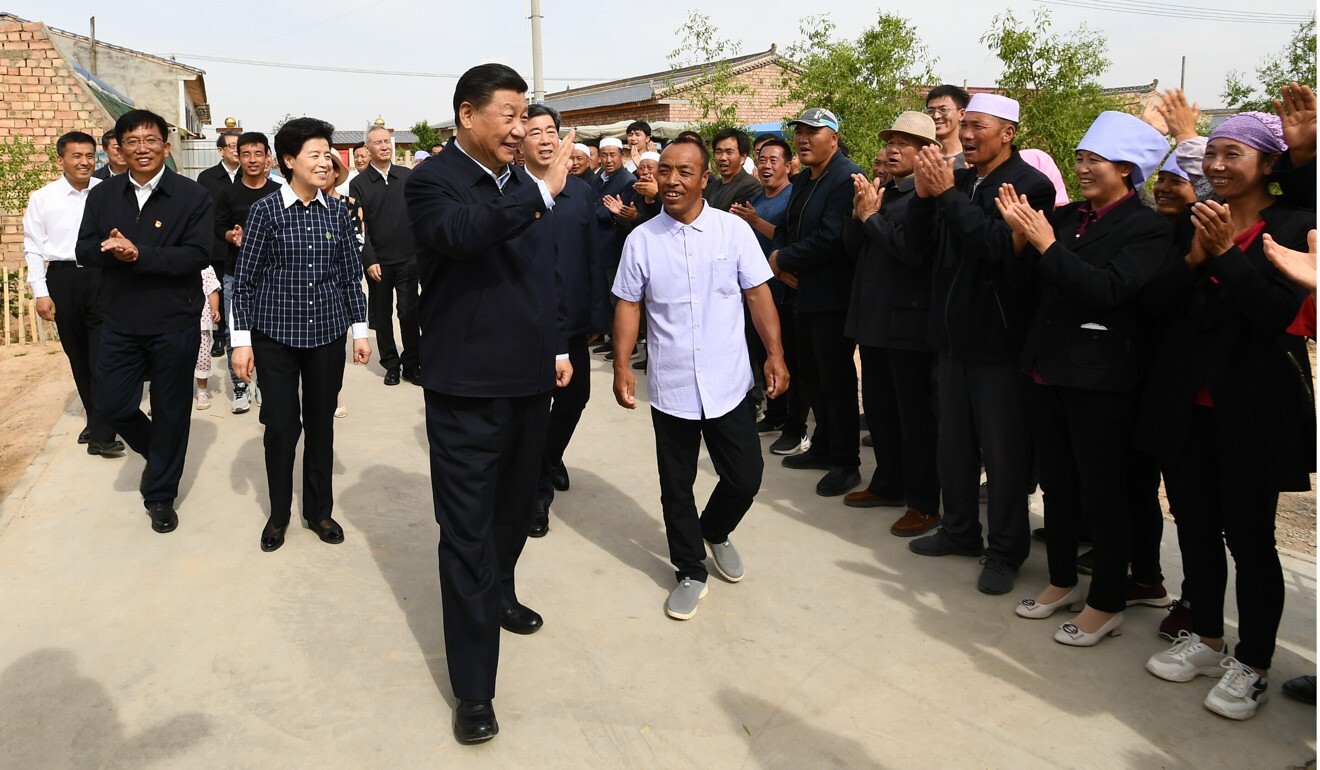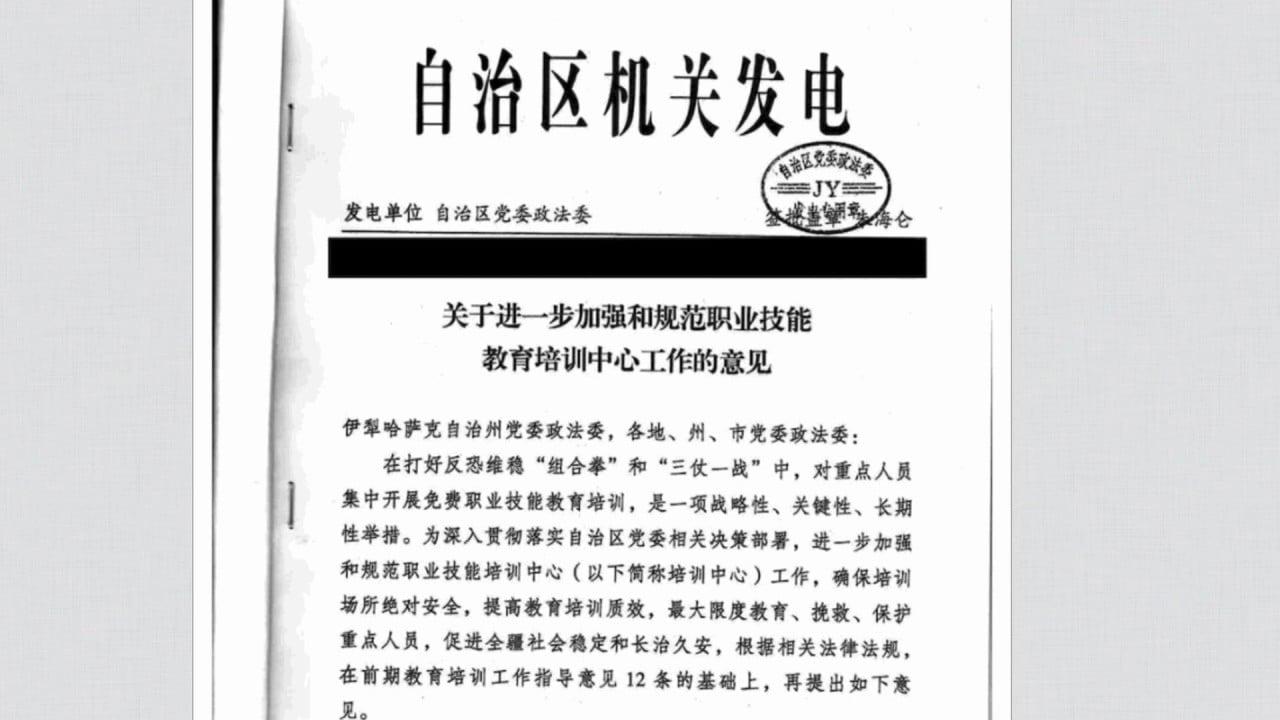
Chinese President Xi Jinping tries to reassure ethnic minorities they won’t be ‘left behind’
- He says they should be able to ‘walk hand in hand into a moderately prosperous society’ on visit to one of country’s poorest regions
- Xi also talks about poverty alleviation, the environment and clean government in Ningxia, home to the Hui Muslim minority

Chinese President Xi Jinping has sought to reassure ethnic minorities that they are part of Beijing’s “common prosperity” programme during a visit to one of the country’s poorest regions.
Xi made the remarks on Monday in Wuzhong, in the Ningxia Hui autonomous region – home to the Hui Muslim ethnic minority in the country’s northwest, according to state media reports on Wednesday.
“Visiting the Jinhuayuan residential community, where people of several ethnic groups live together, Xi said no single ethnic minority group should be left behind in the country’s building of a moderately prosperous society in all respects,” official news agency Xinhua reported.
“It represents the fine tradition of the Chinese nation and the great strength of the socialist system with Chinese characteristics to enable people of all ethnic groups to walk hand in hand into a moderately prosperous society,” the president was quoted as saying.

Xi also talked about poverty alleviation, protecting the environment and clean government while he was in Ningxia – his seventh visit to the provinces this year. He has frequently used regional tours to press local cadres to ensure stability in their areas as China faces an increasingly volatile international environment.
The president made similar remarks about ethnic unity last month when he called on the Maonan in the southern Guangxi Zhuang region to keep improving their living standards after they officially rose above the poverty line.
A Beijing-based researcher at state-funded think tank the Chinese Academy of Social Sciences said while Xi had made the comments to a group of mostly Muslims in Ningxia, it was a broader message intended for other ethnic minorities, including the Uygurs in Xinjiang.
“The Maonan ethnic minority only has a population of about 100,000 and they are not well known even in China,” said the researcher, who requested anonymity because he was not authorised to talk to the media. “But [Xi’s] speech in Ningxia, where there are over 10 million Hui Muslims, will carry more weight.”
He said Xi’s remarks could be seen as an indirect response to Western criticism of Beijing’s policies on ethnic minorities. “[This may signal] a gradual shift – from emphasising harsh control to improving community management, job creation and living standards,” the researcher said.

03:47
Leaked state documents describe repressive operations at China’s detention camps in Xinjiang
Coinciding with Xi’s visit to Ningxia, the far western region of Xinjiang – the focus of widespread international criticism, especially from the US, over Beijing’s treatment of Uygur Muslims – on Wednesday announced it would train 200,000 skilled construction workers in the next three years.
The plan would target workers from poor families in the four prefectures of southern Xinjiang, where the population is predominantly Uygur, according to Xinhua.
Surrounded by desert and situated far from China’s economic centres, Ningxia is traditionally one of China’s poorest regions. In 2019, the landlocked area ranked 21st among China’s 31 provinces, municipalities and regions, with an annual average disposable income of 24,412 yuan (US$3,450) – about 35 per cent of that in Shanghai.